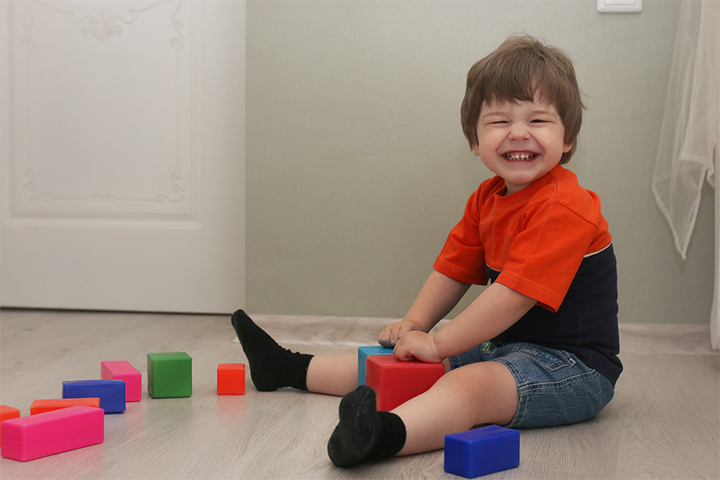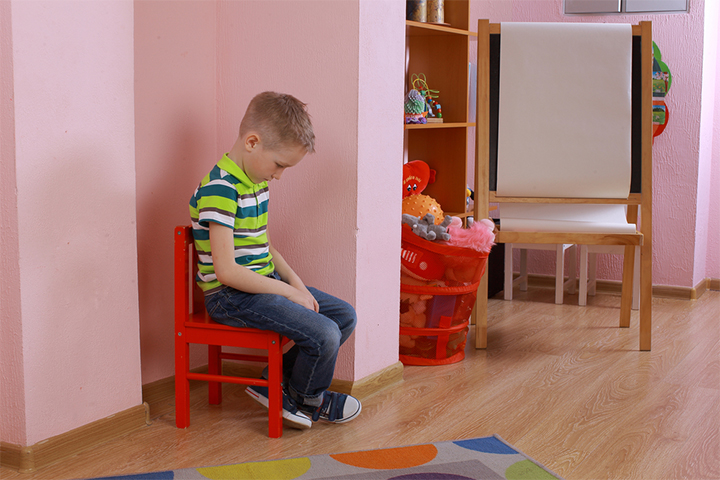
Image: Shutterstock
If you’ve ever come in contact with a screaming toddler who is prone to tantrums then you probably know that teaching them the right tools to cope with their emotions is a life saver for everyone. Many parents come short when their little one starts to cry out of the blue, but you should know that this is because they are yet to develop key executive functioning skills in order to regulate their emotions and reactions. Although you may not be aware of what they are on paper, chances are that you have them (hopefully) and need to intentionally teach them to your kids. Executive functioning skills are what helps us regulate our behavioral impulses and monitors our self control. So the sooner your child gets a grasp on them the better. Here are the 7 executive functioning skills and what you can do to ensure that your child has them.
What Are Executive Functioning Skills?
Image: Shutterstock
Executive function is processes in the brain that help us function. These are those functions that help with the execution of a variety of skills. Children must learn these skills from infancy to adolescents in order to function well and learn restraint and self-control (1). Let’s take a look at what they are.
- Paying attention
- Completion of a task from start to finish
- Self-motivation
- 自我控制、冲动控制和抑制ability to control one’s actions and behaviors)
- Organize and make decisions
- Manage time properly for completion of tasks
- Mental flexibility (being able to change directions with a task when needed)
- Accurate self-assessment (able to look at one’s abilities and achievements objectively)
- Memory and recall (ability to keep information and retrieve it when needed)
- Task initiation (ability to dive into a project and get started)
One must keep in mind that people who do not possess these basic executive skills often have a harder time at socializing, getting tasks completed, and controlling their basic impulses. So making sure that your child picks them up in their early years is extremely important as it can have an impact on their lives.
Ways To Help Your Child Develop Executive Functioning Skills
1. Routine
Image: Shutterstock
Daily routines are important to establish during childhood as they can help create order and predictability, two things that your child will greatly benefit from. For example, in the morning some good habits to establish and expect from children are getting dressed, brushing their teeth, putting on their shoes, combing their hair and preparing their backpack for school. Even something as simple as teaching your kids how to pack their own lunch or dispose of waste correctly and ensuring that they do it everyday can be beneficial. You can give your kids some age appropriate chores so that they can establish a routine that works for them. Then you can add to this list as they grow older and more capable. You can even get them a chart or a daily diary and make a checklist so that they can tick things off the list as they go along.
2. Afterschool Homework Time
Image: Shutterstock
If your child comes home from school and immediately gets to their homework, congratulations, you’ve finally found a unicorn. Most kids come back from school and take a nap or eat a snack and completely forget about their homework altogether. This isn’t uncommon in the early days though, and a little reminding goes a long way. But what would be more helpful is to set aside a specific time to do homework after school. Allow your child to eat a snack and rest for a bit. They can even go out and play with the kids but when it’s time to hit the books, make sure they do just that.
Getting your child in the habit of doing their homework sooner than later helps with planning skills. Having a teenager who waits until 11pm on a Sunday night to start a book report that they have known about for a week is a bad habit. So having this routine will save you a lot of trouble and arguments in the future.
3. Consequences
Image: Shutterstock
Not everything can be smiles and sunshine. Sometimes your kids need to face consequences as it helps develop self-control. If your toddler learns that throwing tantrums will get them nowhere but in time-out, they will likely stop having them in order to get a reaction from you. Consequences should be age appropriate as well. So, keep that in mind before you reprimand your little one.
4. Teach Self Evaluation Through Questions
The ability to assess one’s own abilities and achievements (or lack thereof) is an executive functioning skill. If someone is weak at this skill, then they will be shocked when they fail at something. You must teach your children to introspect so that they know where they stand. Are they patient? Are they kind? What could they have done better that day? Ask them these questions so that they can learn about themselves.
Now that you know all the executive functioning skills that your little one needs to thrive, you’ve got nothing to be afraid of. Take the time to impart these skills and watch your child bloom. Happy parenting!

















